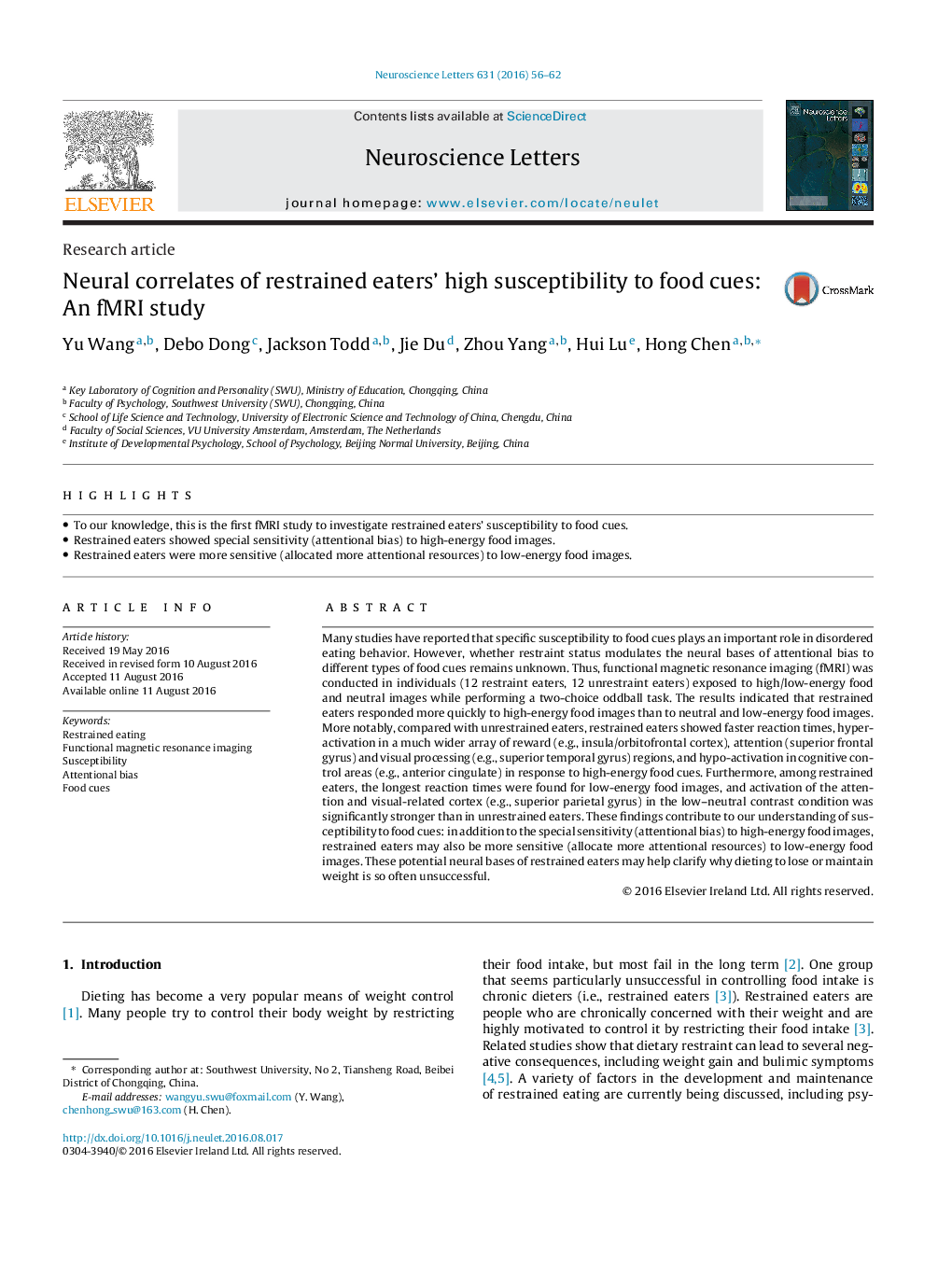| کد مقاله | کد نشریه | سال انتشار | مقاله انگلیسی | نسخه تمام متن |
|---|---|---|---|---|
| 6279100 | 1615068 | 2016 | 7 صفحه PDF | دانلود رایگان |
عنوان انگلیسی مقاله ISI
Neural correlates of restrained eaters' high susceptibility to food cues: An fMRI study
دانلود مقاله + سفارش ترجمه
دانلود مقاله ISI انگلیسی
رایگان برای ایرانیان
کلمات کلیدی
موضوعات مرتبط
علوم زیستی و بیوفناوری
علم عصب شناسی
علوم اعصاب (عمومی)
پیش نمایش صفحه اول مقاله

چکیده انگلیسی
Many studies have reported that specific susceptibility to food cues plays an important role in disordered eating behavior. However, whether restraint status modulates the neural bases of attentional bias to different types of food cues remains unknown. Thus, functional magnetic resonance imaging (fMRI) was conducted in individuals (12 restraint eaters, 12 unrestraint eaters) exposed to high/low-energy food and neutral images while performing a two-choice oddball task. The results indicated that restrained eaters responded more quickly to high-energy food images than to neutral and low-energy food images. More notably, compared with unrestrained eaters, restrained eaters showed faster reaction times, hyper-activation in a much wider array of reward (e.g., insula/orbitofrontal cortex), attention (superior frontal gyrus) and visual processing (e.g., superior temporal gyrus) regions, and hypo-activation in cognitive control areas (e.g., anterior cingulate) in response to high-energy food cues. Furthermore, among restrained eaters, the longest reaction times were found for low-energy food images, and activation of the attention and visual-related cortex (e.g., superior parietal gyrus) in the low-neutral contrast condition was significantly stronger than in unrestrained eaters. These findings contribute to our understanding of susceptibility to food cues: in addition to the special sensitivity (attentional bias) to high-energy food images, restrained eaters may also be more sensitive (allocate more attentional resources) to low-energy food images. These potential neural bases of restrained eaters may help clarify why dieting to lose or maintain weight is so often unsuccessful.
ناشر
Database: Elsevier - ScienceDirect (ساینس دایرکت)
Journal: Neuroscience Letters - Volume 631, 19 September 2016, Pages 56-62
Journal: Neuroscience Letters - Volume 631, 19 September 2016, Pages 56-62
نویسندگان
Yu Wang, Debo Dong, Jackson Todd, Jie Du, Zhou Yang, Hui Lu, Hong Chen,